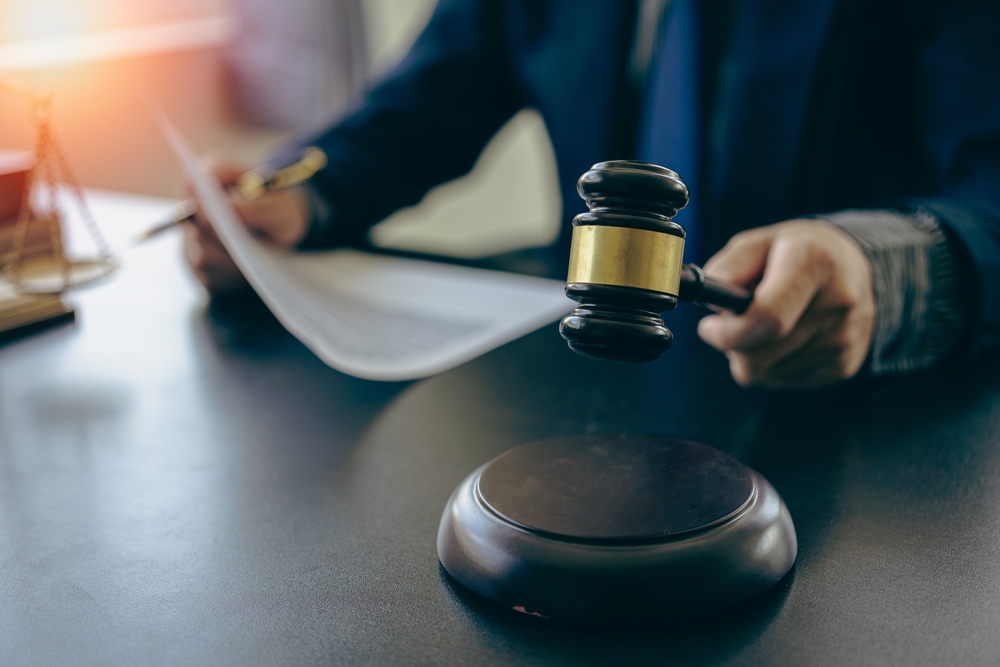Dealing with debt collectors can be challenging and frustrating, especially when they engage in unfair practices. Unfair debt collection practices can range from harassment and intimidation to misrepresenting your rights and non-payment consequences. These practices violate the law and can severely impact your mental and financial well-being.
It is important to understand that you have rights as a consumer and do not have to tolerate these abusive tactics from debt collectors. If you find yourself in this situation, keep a record of all communication and seek legal advice to understand your options and ensure your rights are protected. Contact a consumer protection debt defense lawyer to discuss your case and find the best way to handle the situation.
What Do Debt Collectors Do?

When you find yourself in debt, you need to understand the debt collector’s role. Debt collectors are individuals or companies creditors hire to collect money owed on delinquent accounts. Their main goal is to recover the debt owed to the creditor, and they can employ various tactics to achieve this.
Debt collectors typically start by contacting the debtor through phone calls, text messages, letters, or emails. They may also attempt to track down the debtor’s location if they have moved. Once contact has been established, the debt collector will gather information about the debtor’s financial situation, including income, assets, and expenses.
Armed with this information, debt collectors will negotiate with the debtor to establish a repayment plan. It can involve discussing options such as lump-sum payments, payment plans, or even settlements for less than the full amount owed. The goal is to reach a fair and reasonable agreement for both parties.
However, debt collectors must adhere to strict rules and regulations when trying to collect a debt. They are prohibited from engaging in unfair or deceptive practices, such as making false statements, harassing the debtor, or threatening legal action they cannot take.
Agencies Involved in Overseeing Debt Collection
The Fair Debt Collection Practices Act (FDCPA) is a federal law that governs how debt collectors can legally operate. However, there are also other agencies involved in overseeing and regulating debt collection practices to ensure that consumers are treated fairly. These agencies include:
Consumer Financial Protection Bureau (CFPB)
The CFPB is a government agency responsible for protecting consumers in the financial marketplace. They have the authority to enforce the FDCPA and investigate complaints related to unfair debt collection practices. The CFPB also provides educational resources for consumers, including information on how to handle debt collectors.
Federal Trade Commission (FTC)
The FTC is another federal agency that enforces the FDCPA and works to protect consumers from unfair and deceptive practices. It can take legal action against debt collection companies that violate the law and provide resources and guidance to consumers on their rights when dealing with debt collectors.
State Attorneys General
Each state has its Attorney General’s office responsible for enforcing state laws and protecting consumers. State Attorneys General can take legal action against debt collectors who violate state laws related to debt collection practices. They may also provide resources and information for consumers on their rights and how to handle debt collectors.
These agencies are crucial in monitoring debt collection practices and acting against companies that engage in unfair practices.
Common Illegal Debt Collection Practices

Unfortunately, numerous debt collection practices are considered illegal under the FDCPA. Debt collectors who engage in these practices can be held accountable for their actions. It is important to recognize these illegal practices so that you can protect yourself and take appropriate action. Some common unlawful debt collection practices include:
Harassment or Abuse
Debt collectors are prohibited from engaging in any conduct intended to harass, oppress, or abuse the debtor. It includes using threatening language, repeatedly calling or contacting the debtor, or using obscene or profane language. If you are being harassed or abused by a debt collector, it is vital to document the interactions and report them to the appropriate authorities.
Misrepresentation of the Debt
Debt collectors are not allowed to misrepresent the amount of the debt, the identity of the creditor, or any legal actions that may be taken against the debtor. They are also prohibited from falsely claiming to be an attorney or law enforcement official. If a debt collector provides false or misleading information about the debt, it violates the FDCPA.
Threatening Legal Action
Debt collectors are not allowed to threaten legal action unless they intend to take such action. They cannot threaten to sue, garnish income, or take any other legal action they do not have the authority or intention to carry out. If a debt collector is making false threats of legal action, it is a violation of the FDCPA.
Calling at Inconvenient Times or Places
Debt collectors are restricted from calling debtors at inconvenient times, such as early in the morning or late at night, unless the debtor has permitted such calls. They are also prohibited from contacting debtors at their workplace if it is against the debtor’s employer’s policies. If a debt collector calls you at inappropriate times or places, it is a violation of the FDCPA.
Continuing to Contact the Debtor after a Written Request to Cease Communication
Suppose a debtor sends a written request to a debt collector asking them to cease communication. In that case, the debt collector is legally required to stop contacting the debtor except to notify them of further legal action. Continuing to contact the debtor after receiving a written request to cease communication violates the FDCPA.
These are just a few examples of the many illegal debt collection practices that consumers may encounter. If you believe that a debt collector has engaged in unfair or illegal practices, seeking legal advice and protecting your rights is important.
Understanding Your Rights as a Consumer
As a consumer, you have certain rights protected by federal and state laws when dealing with debt collectors. The Fair Debt Collection Practices Act (FDCPA) is a federal law that sets guidelines for how debt collectors can communicate with you and prohibits certain abusive and unfair practices. These practices include:
- Harassment: Debt collectors are not allowed to harass you or anyone they are attempting to collect from. It includes making repeated phone calls, using obscene language, and making threats.
- Misrepresentation: Debt collectors cannot misrepresent themselves or the debt they try to collect. They must identify themselves accurately and provide information about the original creditor and the amount owed.
- Threats: Debt collectors cannot threaten you with illegal actions, such as arrest or imprisonment, nor can they threaten to take legal action if they have no intention of doing so.
- False Statements: Debt collectors cannot make false statements, such as claiming to be attorneys or government officials or misrepresenting the consequences of non-payment.
- Unfair Practices: Debt collectors cannot engage in unfair practices, such as adding unauthorized fees or charges to the debt or attempting to collect a debt that is not legally owed.
If a debt collector violates any of these rights, you can take legal action against them. Contacting a consumer protection lawyer will help you get through the process and seek the appropriate legal remedies.
Steps to Handle Debt Collectors Who Use Unfair Practices
When dealing with debt collectors who use unfair practices, following specific steps to protect your rights and handle the situation effectively is important. Here are the key steps to take:
Step 1: Educate Yourself about Debt Collection Laws
Step 2: Keep Detailed Records of Communication
Step 3: Request Written Validation of the Debt
Step 4: Dispute the Debt if Necessary
Step 5: Report Unfair Practices
Step 6: Consult with a Consumer Protection Lawyer
Step 1: Educate Yourself about Debt Collection Laws

Start by educating yourself about debt collection laws, especially the FDCPA. Understanding your rights will empower you to recognize when a debt collector is engaging in unfair practices and take appropriate action. Familiarize yourself with the prohibited practices and learn how to document violations during interactions with debt collectors.
Step 2: Keep Detailed Records of Communication
Create a system to keep detailed records of all communication with debt collectors. It includes phone calls, letters, emails, and any other form of communication. Write down each interaction’s date, time, and content. If possible, try to record phone calls with debt collectors, making sure to check if you live in a one-party consent state where only one party needs to consent to the recording.
Step 3: Request Written Validation of the Debt
If you do not believe you owe the debt or want more information, send a written request to the debt collector asking them to validate it. Under the FDCPA, debt collectors must provide you with written verification of the debt within five days of their initial communication with you. Validating the debt will also help determine if the debt collector is legitimate.
Step 4: Dispute the Debt if Necessary
If you believe the debt is not valid or want to contest any aspect of it, you have the right to dispute it. Please send a written letter to the debt collector explaining why you believe the debt is inaccurate or why you are disputing it. Be sure to include any supporting documentation or evidence to back up your claim. The debt collector is required to investigate the dispute and provide you with a response.
Step 5: Report Unfair Practices
If a debt collector continues to engage in unfair practices despite your attempts to resolve the issue, report their conduct to the appropriate authorities. You can file a complaint with the Consumer Financial Protection Bureau (CFPB) and your state’s attorney general office. Providing them with your detailed records and evidence will strengthen your case.
Step 6: Consult with a Consumer Protection Lawyer
If you have followed the previous steps and the debt collector persists in using unfair practices, it is time to consult with a consumer protection lawyer. They will review your case, determine if your rights have been violated, and guide you through the legal process. An experienced consumer protection lawyer will help you understand your options and provide sound advice on handling the situation effectively.
Why You Need a Consumer Protection Lawyer
Retaining a consumer protection lawyer is essential when dealing with debt collectors who use unfair practices. Here are the reasons why you need a lawyer by your side:
- Experienced Knowledge: Consumer protection lawyers have in-depth knowledge of federal and state laws related to debt collection practices. They understand the intricacies of the FDCPA and can identify any violations of your rights.
- Legal Strategy: A consumer protection lawyer will help develop a legal strategy tailored to your case. They will analyze your situation, assess potential legal claims, and determine the best action to protect your rights and achieve the desired outcome.
- Maximize Compensation: A consumer protection lawyer will fight for fair compensation if your rights have been violated. They will pursue all available legal remedies to ensure you are fairly compensated for any harm you have suffered due to the debt collector’s unfair practices.
- Representation in Court: If necessary, a consumer protection lawyer will represent you in court. They will handle all aspects of the legal proceedings, including filing legal documents, conducting negotiations, and presenting your case before a judge and jury.
- Peace of Mind: Having a consumer protection lawyer by your side will give you peace of mind throughout the process. They will handle all communication with the debt collector, relieving you of the stress and frustration of dealing with them directly.
Contact an attorney well-versed in debt collection practices to discuss your case and find the best way to handle the situation. Your consumer protection lawyer will be your ally in protecting your rights and seeking justice against unfair debt collection practices.
Did a Debt Collector Violate Your Legal Rights? Get the Legal Representation You Need

Dealing with debt collectors who use unfair practices can be emotional, scary, and frustrating. However, always remember that you have rights as a consumer and should not tolerate abusive tactics. Understanding these rights, keeping detailed records, and taking the appropriate steps outlined in this article will help navigate the situation effectively.
Seeking legal advice from a consumer protection lawyer is imperative to protecting your rights, fighting against unfair practices, and achieving a favorable resolution. Contact a seasoned consumer protection attorney near you to discuss your case and take the necessary steps to handle debt collectors who use unfair practices.